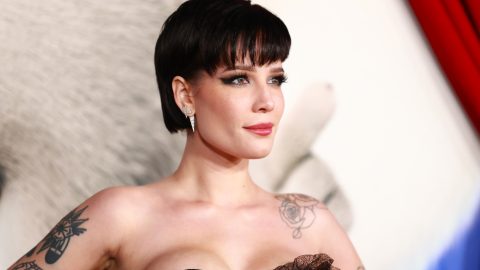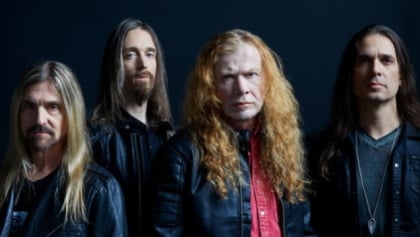
I put it down to Graymania. The world was driven to such extremes of pent-up frustration, as it waited for the Sue Gray report to fall upon Boris Johnson’s Government like a sledgehammer on a champagne glass fountain, that it turned in upon itself. In the past week all manner of pop culture beefs have broken out: pop queen vs indie icon, folk legends vs anti-vax peddlers… Smith vs Smith.
Deep breath. Calm thoughts. Pinch of spice. Let’s work through the issues of this most combative of pop weeks one by one, then get back to the vital business of neutering Big Dog. First: Morrissey’s open letter to Johnny Marr, the most ridiculous of the week’s spats. In a post on Morrissey Central directed at his former bandmate, Morrissey requested that Marr “stop using my name as click-bait”, as though he was less guitar hero plugging a new album, more Daily Mail Sidebar Of Shame. “Yes, we all know that the British press will print anything you say about me as long as it’s cruel and savage,” he wrote. “But you’ve done all that. Move on… The fact is: you don’t know me.”
Morrissey has, of course, struck on the flaw in his own argument here. Having interviewed Johnny, I can attest that he doesn’t habitually burst into the press chamber bellowing disparaging thoughts on his ex-bandmate’s latest outbursts like a veggie-hating Brian Blessed. He tends to skirt around the topic if he can. But crucially, since he’s not in the habit of interviewing himself, he is resigned to the fact that every hack he so much as glances at askance is going to ask him about Morrissey’s latest controversial comment, with a query on the likelihood of a Smiths reunion tacked on as a supplementary.
The reasons for this are twofold. One: Smiths fans, numerous and devoted, really want to know what Johnny Marr thinks of Morrissey’s opinions. Two: If The Smiths ever do reform and you’re the journalist who interviewed Johnny Marr 10 minutes earlier and didn’t ask about it, you’ll be out on your arse faster than the Downing Street cheese arranger.
The takeaway here is: ‘Blame the game, not the player’. And the same could also, kind of, be said of Damon Albarn’s inadvisable disparaging of Taylor Swift’s songwriting prowess. “She doesn’t write her own songs,” Damon said when Swift was held up by a Los Angeles Times interviewer as an example of a modern musician who doesn’t rely on sound and attitude to get by. She co-writes many of her songs, he was told. “I know what co-writing is,” Albarn replied. “Co-writing is very different to writing.”
While Swift’s biting back online (“I write ALL of my own songs”) was inevitably going to spark a monumental pile-on, the backlash unfairly cast Albarn as a mouthpiece of age-old industry misogyny, out to diminish the talent of successful women. This undoubtedly exists – in an interview two days later I was amazed to find that even a songwriter as autonomous as Cat Power has had to fight to get the production credit she deserves – and Damon was clearly wrong in assuming that Swift isn’t a master of her own songcraft: her producers flocked to confirm that they merely season the songs she brings in virtually fully formed.
But Albarn’s championing of Billie Eilish as “exceptional” spoke volumes as to his true meaning – that the co-writing that Eilish did with her brother in a family bedroom, or that most ‘traditional’ songwriters have done since ‘A Hard Day’s Night’, is a form of creativity distinct from the co-write between high-priority artist and bought-in hitmaker. Swift was just a really, really bad example.
His attitude has been painted as old-fashioned indie tribalism, but it’s arguably more relevant in the two-tier streaming age than ever before. With alternative and independent acts effectively locked out of the singles chart, a bunch of alt-hopefuls might fire up the bong and sit down to write a great song, but they’d have to be far, far gone on the toot to delude themselves into thinking they might craft an actual chart hit.
When the “co-writes” Damon was referring to – between mainstream artists and professional songwriters for hire – happen, however, a race is on. Not just between those writers and any other team that might be vying for space on the big album, but between that artist and hordes of others in the running for that plum playlist spot, that career-sustaining Billboard placing, that influencer’s viral montage of them surprising their dog.
Did you know that the most popular BPM on streaming services is currently 144? That the pop intro has effectively died out as a relic of the radio age, and that songs now aim to get to the main hook within 30 seconds to keep us listening long enough to count as a stream? That hit tracks are one-minute-13-seconds shorter on average than they were pre-streaming, because if people don’t finish listening to them, the artist’s Spotify rating falls? That the ideal chorus lasts less than 15 seconds for maximum TikTokability? That the vast majority of Number One songs use the word “you” before reaching the bridge? These teams know this – and plenty more tricks besides.
There’s nothing new, or even particularly sneer-worthy, about commercial song-building. Nobody struck David Bowie off the critical register for calling in Nile Rodgers to write him US hits on ‘Let’s Dance’. We all love The Monkees. Old-school indie superiority is very much frowned upon in the streaming age; pop songwriting is to be considered an art-form worthy of the same respect as any other. But let’s not also be naïve about it: these are two fundamentally different processes with different end results in mind
Rather than Damon’s misdirected barb, what should really shock us about Swiftgate is that it implies big name producers are insisting on taking writing credits, and therefore a greater slice of the artist’s money, in order to put their names to projects. That’s a shameful leech on the real talent in the room, which only serves to undermine their achievements and diminish their artistic reputations, and the sort of practice that Swift and her ilk – the true pop songwriters – should be shaking off.
Talking of standing up for what you deserve: the final beef of the week was a heart-warming tale of honour versus hubris. Sick of sharing a platform with the anti-vax bullshit of The Joe Rogan Experience, Neil Young picked up his entire cornfield and stormed off Spotify – with Joni Mitchell following suit. Subscribers crashed Spotify’s cancellation pages, the share price plummeted, wiping £2 billion from the company’s value. James Blunt even threatened to post new music on Spotify if Joe Rogan (who has since apologised) wasn’t excommunicated forthwith. This is Cuban Missile Crisis stuff.
As every major artist likely questions their priorities and decides whether to join the Tidal wave to a more ethical and artist-friendly platform (or at least one whose CEO doesn’t fund AI warfare), the prospect arises of both political and cultural empires soon being toppled. Two downfalls a long time coming; both proof that, after all our struggles and sacrifices, truth and fairness are now minimum expectations of the post-pandemic world.
Meanwhile, all this arguing hasn’t half made music exciting again. The damning report might be out now, but you could have taken a couple more days, Sue.
The post Swift vs Albarn, Morrissey vs Marr and Young vs Spotify: dissecting pop’s Beef Week appeared first on NME.







